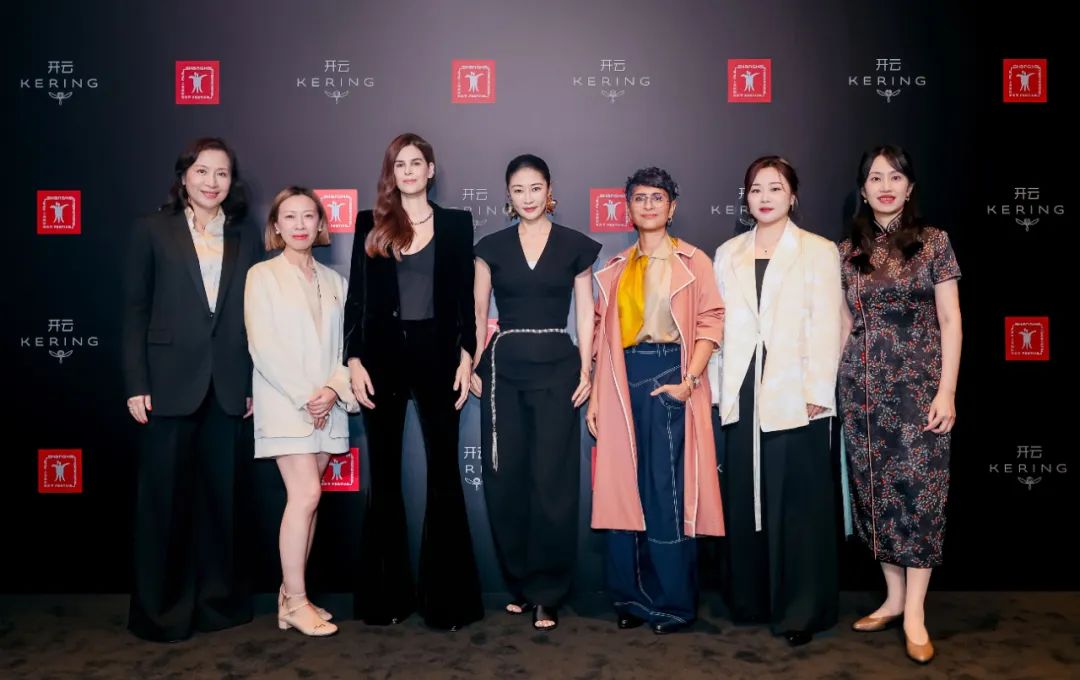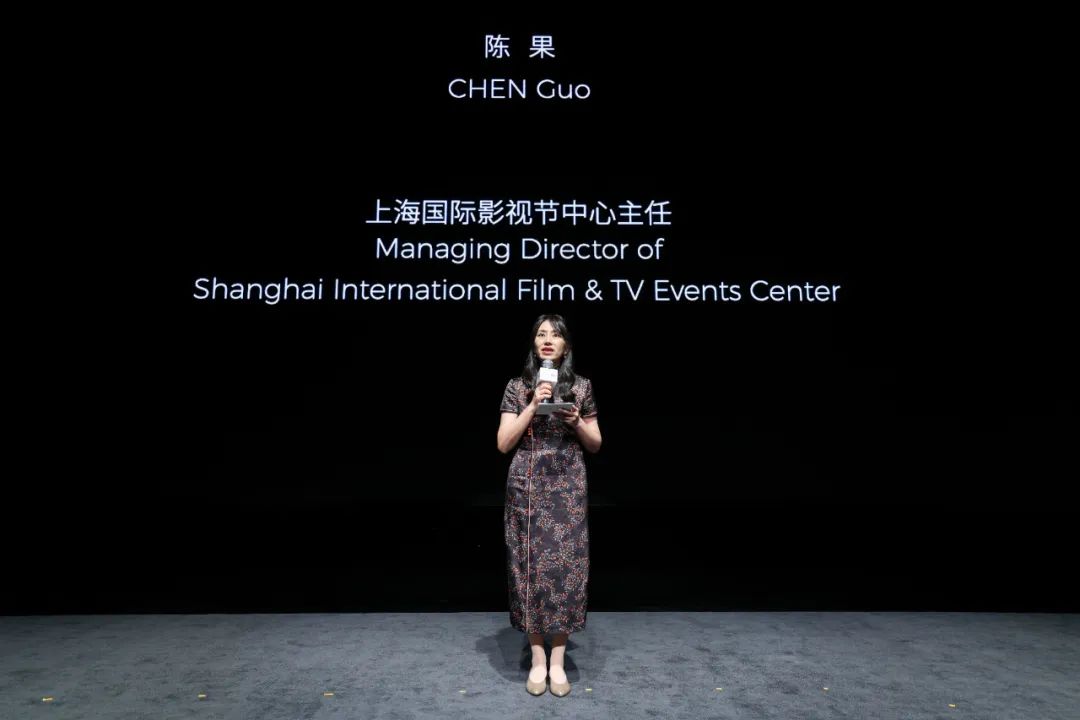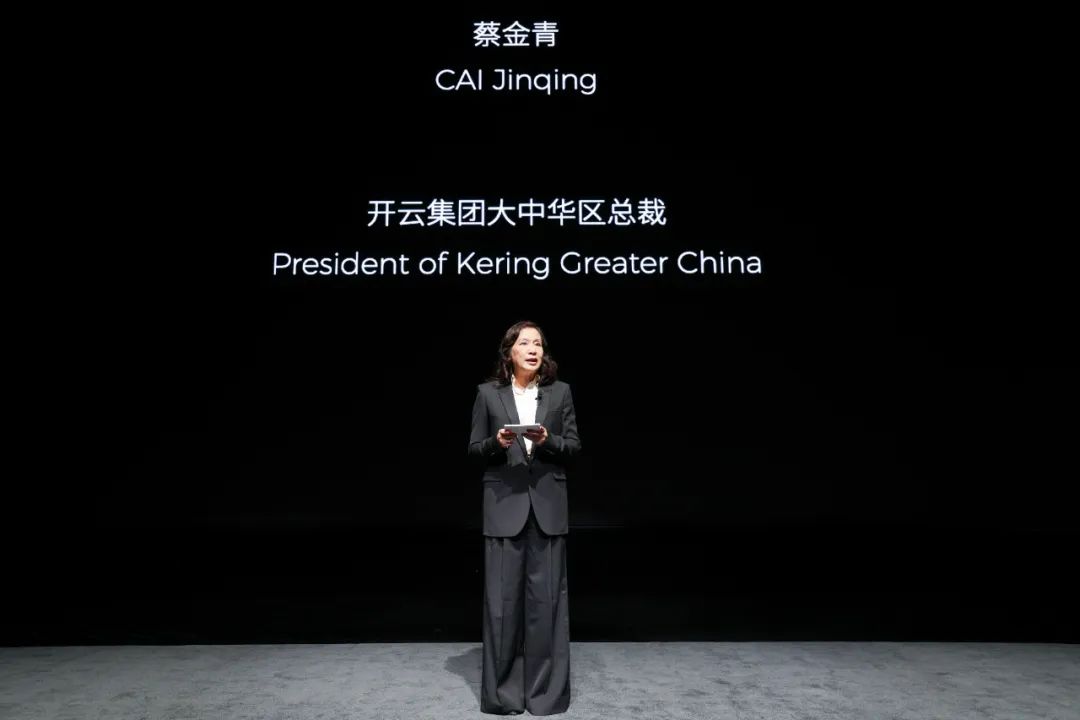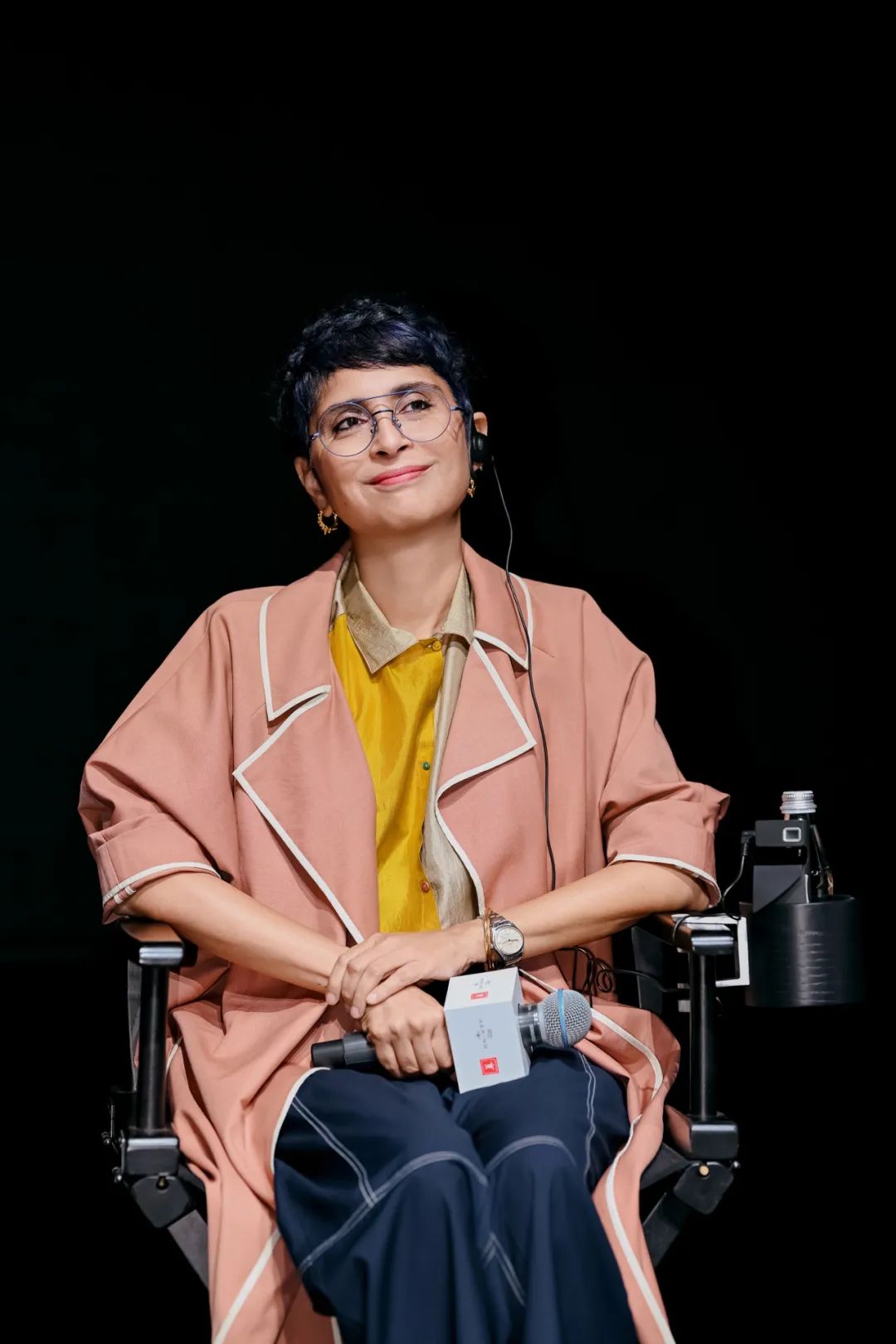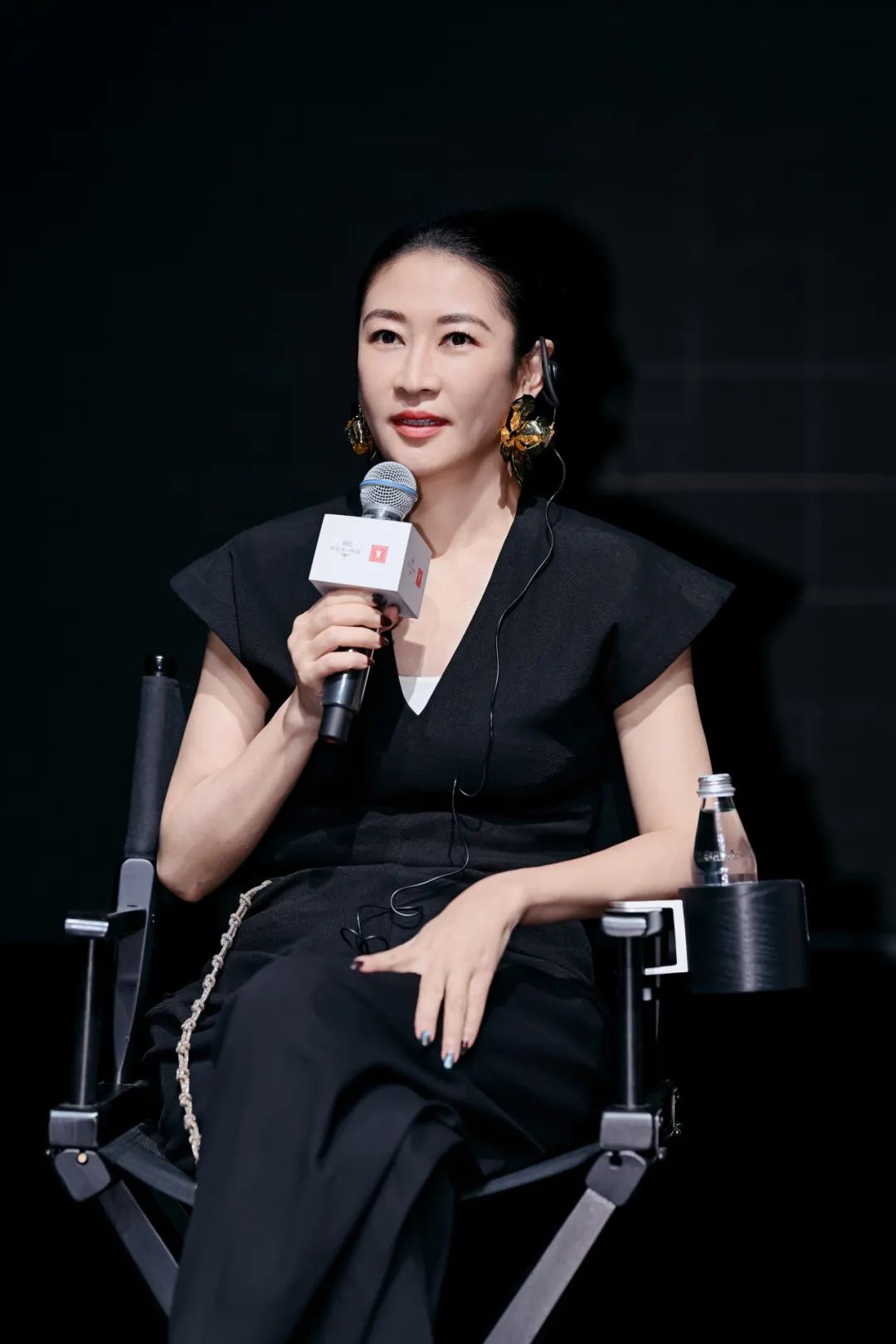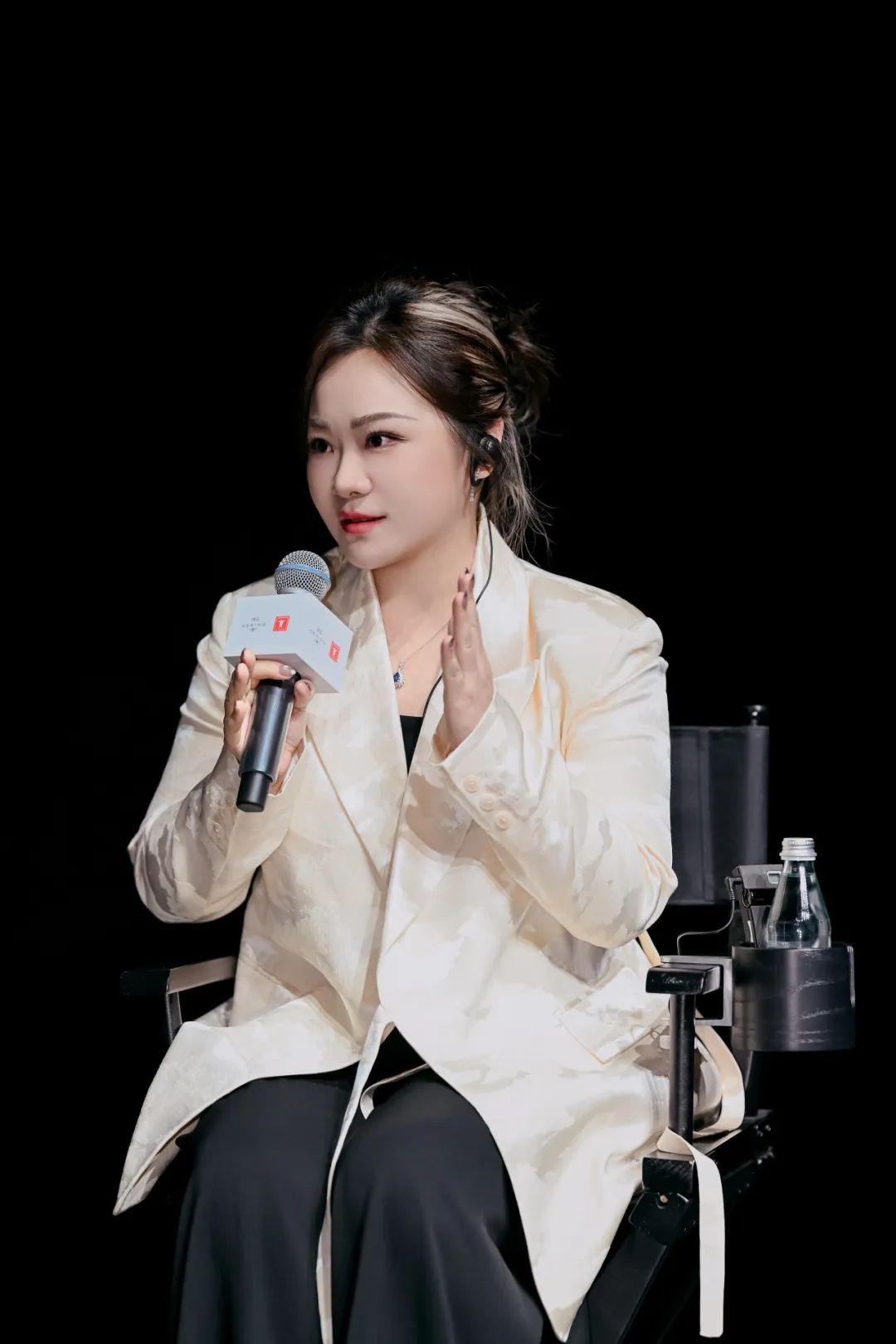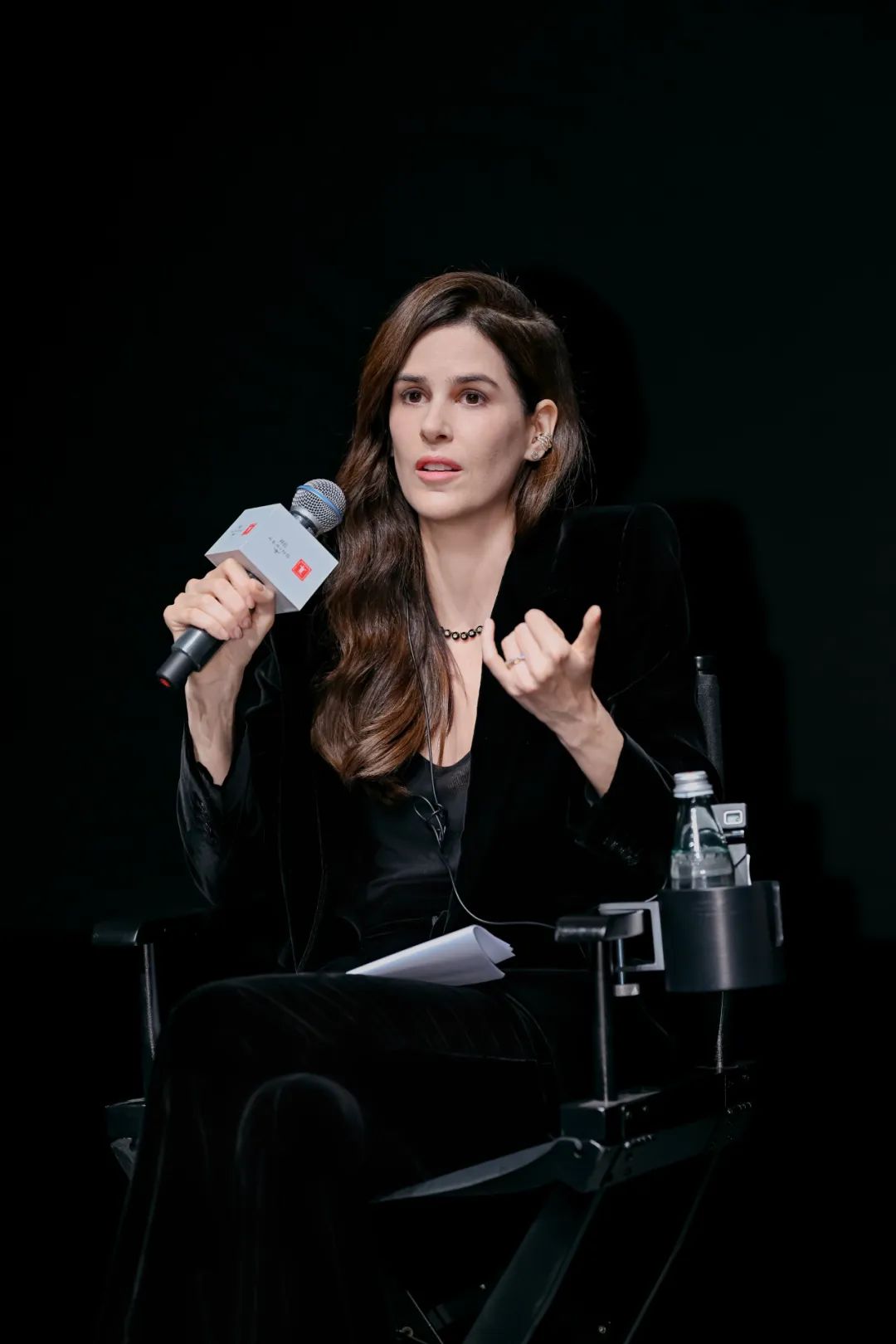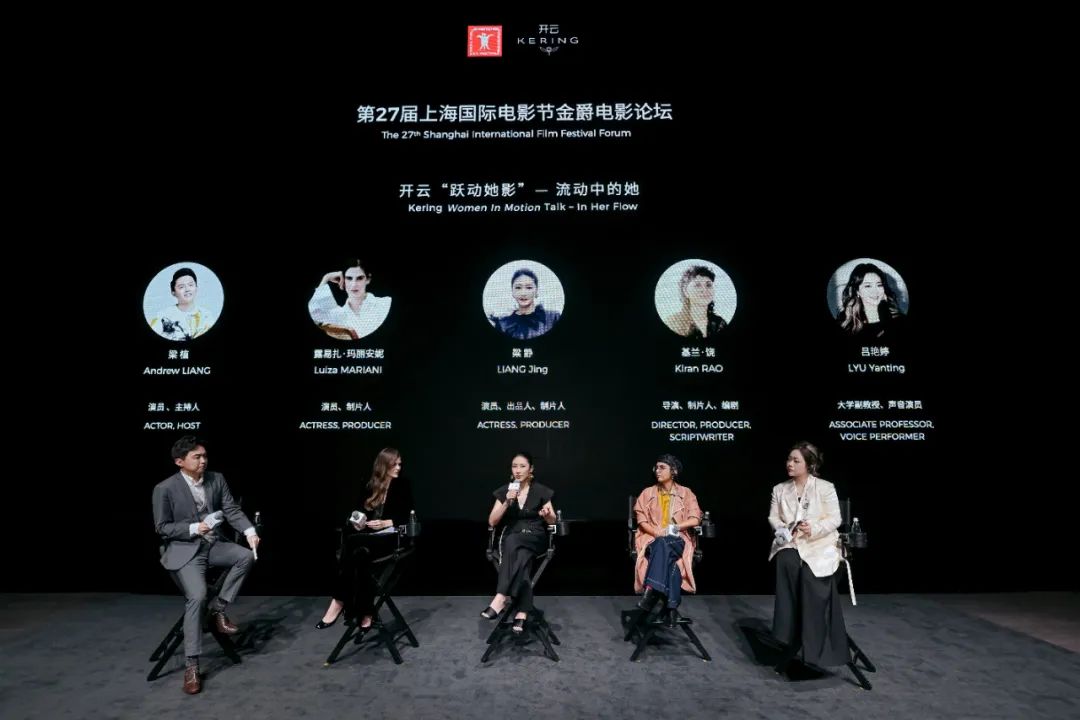SIFFORUM | WOMEN IN MOTION: The Evolving Womanhood in Frames
In recent years, female filmmakers have been breaking through the boundaries of their times with a vigorous momentum. Through delicate brushstrokes, they sketch the scenes of life, capturing emotional pulses with sharp perception, and infusing their works with inner strength. Their voices transcend race, culture, and national borders, showcasing the resilience, spirit, and sense of responsibility of women in the tide of the times. On the afternoon of June 15, the 27th Shanghai International Film Festival (SIFF) hosted the SIFFORUM X Kering WOMEN IN MOTION Thematic Forum, where four female filmmakers from China and abroad engaged in an in-depth dialogue on the theme of “The Evolving Womanhood”. They shared the unique charm of cinema from a female perspective and revealed the powerful spiritual force of female creators, both on and off the screen.
Chen Guo, Director of Shanghai International Film & TV Festivals, Co., Ltd., and Cai Jinqing, President of Kering Greater China, delivered the opening remarks for the forum. Chen Guo emphasized that in recent years, an increasing number of female creators have emerged on the stage of SIFF. Their works not only reflect a profound observation of the real world but also showcase highly personalized narrative styles and emotional depth. “SIFF will continue to provide diverse platforms for filmmakers, a broad creative space, and long-term support mechanisms,” she said.
This year marks the tenth anniversary of Kering Group’s “WOMEN IN MOTION” initiative. Over the past decade, the project has expanded through various forms such as awards, dialogues, exhibitions, performances, and podcasts, all with the aim of enhancing the visibility of female artists’ creativity and amplifying their voices. To date, the project has held over 100 forums and events worldwide. Cai Jinqing remarked, “From resonating ideas to platform collaboration, and to content co-creation, ‘WOMEN IN MOTION’ has continually empowered female filmmakers through deep partnerships with top industry platforms and artistic organizations, promoting a more open and diverse film ecosystem.
Kiran Rao
Director, Producer, Screenwriter
As producers, we strive to use the art of cinema to subtly challenge societal norms and create emotionally resonant stories centered on women’s experiences. For example, Dangal breaks down gender bias by portraying female empowerment in a patriarchal society, while Secret Superstar tells the moving story of a veiled girl who overcomes countless obstacles to become a singer. What allows these stories to transcend cultural boundaries and strike a universal chord is the same force at the heart of my new film, Lost Ladies. While the struggles of rural brides in India may seem worlds apart from the lived experiences of audiences in terms of geography or education, the longing for freedom and opportunity is a deeply shared desire among women everywhere. It is this universal emotional thread that makes Indian films centered on women’s narratives resonate so strongly, even in markets with vastly different cultures, like China.
Liang Jing
Actress, Producer, Investor
This year marks my eighth year working behind the camera. Honestly, I know my progress has been slow. From the outside, some of the projects I’ve been involved in might seem caught in the industry’s inner competition, but personally, I’m not fully satisfied with where I am. This kind of transition requires perseverance - even the smallest step forward is still real progress. Don’t compare yourself with others. Everyone has a different knowledge structure, a unique way of thinking, a different environment, and is shaped by different people. We should only compare ourselves with who we were yesterday. As long as we can see that we’re growing a little every day, then that is growth. There’s still a long way for me to go, and much room for improvement - but I don’t feel like I’m too late. I still feel young. And I believe this is the mindset we all should hold. With that, women can gradually strengthen their presence and voice in society. That’s also the core spirit behind our film, Dongji Rescue: to be someone who dares to break down the wall. Maybe that wall has confined you for a long time. But when you finally break it down, you’ll see - the light has already begun to shine through the cracks.
Lv Yanting
Associate Professor, Voice Actress
There’s always a lot of curiosity about the current state of voice acting, especially for women in the industry. I feel very fortunate that through this project, people can witness the energy that voice actresses bring to their roles. For example, someone once asked how I managed to roar with such power in Ne Zha. I believe that comes from the deep reservoir of inner strength within Chinese women - we’ve always had immense energy waiting to be released. And it’s precisely the uniquely feminine qualities of inclusiveness and the ability to embrace everything that fuel this strength. That’s what I’ve come to realize most deeply in my work. As a teacher, I often work with students around eighteen or nineteen years old, just on the cusp of graduation. The reason I’ve stayed committed to teaching is that I want more people to understand the voice acting industry. I immerse myself in frontline industry work to explore the core competencies, professional skills, and foundational abilities a voice actor needs. Then I bring these firsthand experiences back to my students so that when they enter the field, they won’t feel lost or unprepared.
Luíza Mariani
Actress, Producer
In Brazil, films directed by women now account for 15% of the total - a significant breakthrough, considering that number was less than 2% just a decade ago. It took me twenty years to create Cyclone - I entered the industry at 25, and finally completed the film at 44. Securing the rights alone took ten years - it was truly a long journey. Cyclone is based on a true story. The woman it portrays died in 1919 at the age of 19. Nearly a century later, I feel honored to be the one telling her story and giving voice to someone who had long been unheard. For me, this creative process was a brand-new and deeply meaningful chapter in my life. And finally, I want to say this: never give up on your dreams. Even when it feels impossible, keep going. I, too, have felt hopeless many times, but I chose to keep chasing my dreams, to keep fighting. After all, there’s no such thing as a free lunch.


